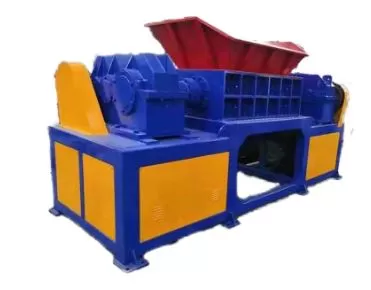As the CEO of Amige, a leading manufacturer in the recycling industry, I’m often asked about the drawbacks of trash shredders. Let’s dive into this intriguing topic and uncover the truth behind the disadvantages.

Are Trash Shredders a Perfect Solution?
Trash shredders undoubtedly play a crucial role in waste management, offering an efficient means of reducing the volume of solid waste. However, like any technology, they come with their own set of limitations and challenges that need to be addressed.
Exploring the Downsides of Trash Shredders
While trash shredders excel at shredding and processing various types of waste, including plastics, paper, and organic matter, they are not without their disadvantages. One significant drawback is the potential for mechanical failures and downtime, which can disrupt operations and lead to costly repairs.
Environmental Concerns
Another concern associated with trash shredders is the generation of fine particulate matter and dust during the shredding process. This can pose health risks to workers and surrounding communities, especially if proper dust suppression measures are not implemented.
Maintaining Efficiency
Maintaining optimal shredder performance requires regular maintenance and upkeep, including blade sharpening, lubrication, and inspection of mechanical components. Failure to perform routine maintenance can result in decreased shredder efficiency and increased energy consumption.
Noise Pollution
Trash shredders can be noisy, especially when processing large volumes of waste. This noise pollution can be disruptive to both workers and nearby residents, potentially leading to complaints and regulatory issues.
Limited Capacity
While trash shredders are capable of processing significant quantities of waste, they have their limits. Large-scale waste management operations may require multiple shredders or additional processing equipment to handle the volume effectively.
Safety Concerns
Operating a trash shredder poses inherent risks to workers, including the potential for accidents and injuries. Proper training, safety protocols, and protective equipment are essential to mitigate these risks and ensure a safe working environment.
Conclusion
In conclusion, while trash shredders offer numerous benefits in waste management and recycling, they also present several challenges that must be addressed. From mechanical failures to environmental concerns and safety risks, it’s essential to carefully weigh the pros and cons before integrating shredding technology into your waste management strategy. As industry leaders, it’s our responsibility to innovate and develop solutions that maximize efficiency while minimizing the negative impacts of waste processing technologies.
